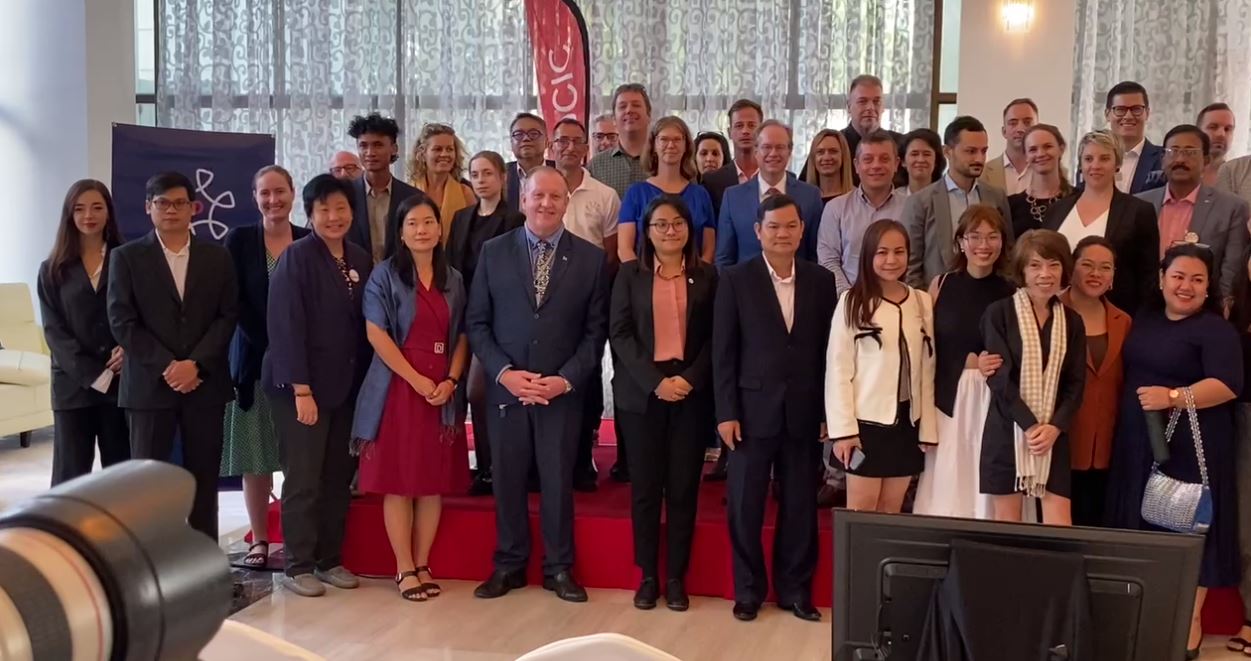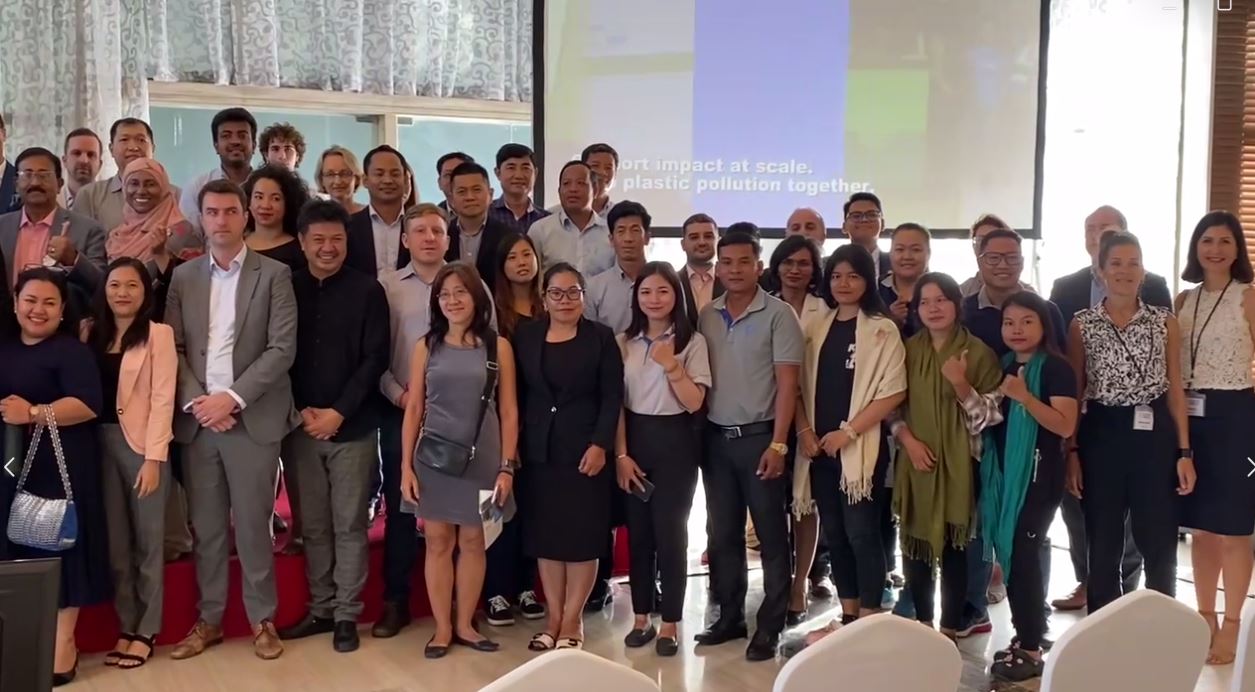PHNOM PENH: The OCIC Sale Centre in Koh Pich hosted the Destination Mekong Summit from December 6-7, where domestic and international tourism stakeholders gathered to promote a new dawn in Mekong region tourism that focuses on sustainability, innovation and harmonious development. The two-day event, comprising of seminars, networking sessions, and public displays, aimed to champion sustainable ecotourism initiatives in the Mekong regions while fostering collaboration between the public and private sectors.
Organized by Destination Mekong, a private regional tourism operator, the summit served as a platform for industry professionals to engage in discussions on leveraging tourism as a force for good. Their goal is to drive balanced tourism growth, promote inclusivity, and contribute to post-pandemic recovery by creating jobs and strengthening communities in the region.
Jens Thraenhart, the founder of Destination Mekong, emphasized the significance of this year's summit, which provided a critical space for tourism professionals to focus on collaboration and cooperation within the industry. Thraenhart, who is also a founding partner of Chameleon Strategies, a consultancy in the hospitality, travel, and services industries, highlighted the importance of the event as it marks the fourth edition and has evolved into a collaborative effort between the public and private sectors.
Catherine Germier-Hamel, CEO of Destination Mekong, said that the organizers aim to connect to stakeholders and investors on a personal level by highlighting the richness of biodiversity and culture along the Mekong.
“We are focusing on action and connection. So this is not only an event, actually, this is a movement,” she said. “Through the Destination Mekong Summit, we really want to engage the different stakeholders of the region. It’s not only about Cambodia, it’s also about the Mekong region and Cambodia as a model for the region. We are here to engage people to create solutions, to share good practices, and to create this movement where we will promote the Mekong region as a sustainable tourism destination, but also destination for investment…This is a diverse region, rich in biodiversity, but rich in culture, and the region in many opportunities.”
She also mentioned her vision of tourism post-Covid, which she says should include attracting international visitors, but also encouraging regional and domestic tourism.
“The Mekong region is not only people in the Mekong region, but also the source market for tourism,” she said. “So we have, you know, Korea, India, China, of course, but what is very important to mention is that after the Covid pandemic, we also want to promote intra-regional tourism, or even domestic tourism because it's all about traveling throughout the country, not necessarily from abroad, but within the community…We really want to open the region to the world to make it a global hub, I would say for tourism, and for any project that can use tourism as a force for good empowerment and engagement.”
Nikolas Hatz, a German consultant who with Destination Mekong, noted the impact that collaboration on projects in Cambodia can have on the region. “The destination Mekong Summit is all about collaboration, right? And whatever we do here in Cambodia, does also matter to the region,” he said. “So the Destination Mekong Summit, by bringing together different stakeholders from across six Mekong countries, has a huge impact to talk about relevant topics that obviously do not end at one border.”
He also explained how tourism is recovering from Covid and how that has forced the industry to rethink its strategies. He reiterated Prime Minister Hun Manet’s vision of attracting tourists to Cambodia with more than just temples.
“It's going up, it's going back, it's recovering slowly, but surely. We do have a lot of potential that we want to tap into,” he said. “Obviously Covid has led to rethinking of how we want to continue and there is a couple of exciting topics out there, beyond the temples that actually we are currently looking into to make the whole industry more competitive. “
He also highlighted the importance of Mekong countries collaborating to craft more interesting destinations for tourists as the industry moves forward.
Placing innovation and sustainable tourism practices at the forefront, the Destination Mekong Summit 2023 was held to foster collaboration, exchange ideas, and develop strategies to propel the tourism industry forward responsibly. The dynamic agenda featured inspiring stories from over 40 key players, with engaging panel discussions, and interactive workshops covering critical topics relevant to the region's tourism landscape.
The summit presented a valuable platform for stakeholders to collectively shape the future of tourism in the Mekong region, emphasizing responsible and harmonious growth within the industry.
























